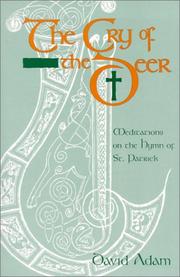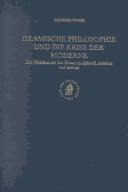| Listing 1 - 10 of 3852 | << page >> |
Sort by
|

ISBN: 0819214426 Publisher: Wilton Morehouse-Barlow
Abstract | Keywords | Export | Availability | Bookmark
 Loading...
Loading...Choose an application
- Reference Manager
- EndNote
- RefWorks (Direct export to RefWorks)
Book
ISBN: 3451182831 Year: 1979 Publisher: Freiburg Herder
Abstract | Keywords | Export | Availability | Bookmark
 Loading...
Loading...Choose an application
- Reference Manager
- EndNote
- RefWorks (Direct export to RefWorks)
Book
ISBN: 9783770554263 3770554264 3846754269 9783846754269 Year: 2017 Publisher: Paderborn Brill | Fink
Abstract | Keywords | Export | Availability | Bookmark
 Loading...
Loading...Choose an application
- Reference Manager
- EndNote
- RefWorks (Direct export to RefWorks)
Wie die aktuellen Fälle von Plagiaten in der zeitgenössischen Literatur oder in Doktorarbeiten zeigen, bewegen sich die öffentlichen Debatten um Plagiat und Fälschungen im ewiggleichen Zirkel von Skandalisierung und Verharmlosung, ohne jedoch den Phänomenen auf den Grund zu gehen. »Täuschend, ähnlich« untersucht erstmals Fälschung und Plagiat als komplementär aufeinander bezogene Praktiken. Sie liest sie explizit als Symptome kulturhistorischer Brennpunkte und epistemischer Krisenmomente. Dabei werden jeweils ganz konkrete Fallbeispiele aus den Feldern von Philologie, Psychoanalyse, Naturwissenschaften und Poetologie mit theoretischen Erörterungen zu Fälschung bzw. Plagiat aus diesen Disziplinen konstelliert.
Urheberrecht --- Plagiat --- Fälschung --- Einflussangst --- Autorschaft
Book
ISBN: 9004404635 9646781969 Year: 2019 Publisher: Leiden; Boston : BRILL,
Abstract | Keywords | Export | Availability | Bookmark
 Loading...
Loading...Choose an application
- Reference Manager
- EndNote
- RefWorks (Direct export to RefWorks)
Ibn al-Fāriḍ (d. 632/1235) is arguably the greatest mystical poet in the history of Arabic literature. Born in Cairo and a student of Shāfiʿī law and ḥadīth in his younger years, he turned to mysticism, living a solitary existence on Cairo's Muqaṭṭam hills, in the desert, and in the Hijaz. After his return to Cairo, people worshipped him as a saint, and even today admirers still visit his tomb. Ibn Turka Iṣfahānī (d. 835/1432) stemmed from a well-educated family in Isfahan. A survivor of Tīmūr Lang's (d. 807/1405) massacre of the population of Isfahan in 789/1387, he first studied the Islamic sciences with his elder brother in Samarqand, after which he went on a study tour which took him to such great scholars as Shams al-Dīn Fanārī (d. 834/1451) and Sirāj al-Dīn al-Bulqīnī (d. 805/1403). A specialist of mysticism in its relation to philosophy and Islam, this is his commentary on Ibn al-Fāriḍ's al-Tāʾiyya al-kubrā.
Book
ISBN: 9783110766264 9783110438024 3110766264 311043802X Year: 2020 Publisher: Berlin Boston
Abstract | Keywords | Export | Availability | Bookmark
 Loading...
Loading...Choose an application
- Reference Manager
- EndNote
- RefWorks (Direct export to RefWorks)
Previous Fa d’Ambô grammars are all written in Spanish, either in the spirit of Latin grammar models (Vila 1891, Barrena 1957) or in the tradition of Romance philology (Zamora Segorbe 2010). A Grammar of Fa d’Ambô aims to overcome the shortcomings of these grammars by providing a comprehensive description of the language from a creolistic, typological, and general linguistics perspective.The grammar covers all major domains of grammar and the different types of interactions between them. The book further includes transcribed texts (about 12,000 words), a Fa d’Ambô-English word list (about 1,140 entries) and supplementary audio materials corresponding to the transcribed texts and spectrograms.Being the first comprehensive Fa d’Ambô grammar written in English, the book aims at a wide readership of scholars who are interested in creoles, language typology, and language documentation in general, but also targets a specialized readership in Portuguese-related creoles. The grammar is further expected to make a substantial contribution to our understanding of the relation between Fa d’Ambô and its better-known sister languages Santome, Angolar, and Lung’Ie (Principense), spoken on the islands of São Tomé and Príncipe.
Book
ISBN: 1108281184 1108277829 1108278841 1108417531 Year: 2019 Publisher: Cambridge : Cambridge University Press,
Abstract | Keywords | Export | Availability | Bookmark
 Loading...
Loading...Choose an application
- Reference Manager
- EndNote
- RefWorks (Direct export to RefWorks)
Widely regarded as the founder of the Islamic philosophical tradition, and as the single greatest philosophical authority after Aristotle by his successors in the medieval Islamic, Jewish, and Christian communities, Alfarabi was a leading figure in the fields of Aristotelian logic and Platonic political science. The first complete English translation of his commentary on Aristotle's Topics, Alfarabi's Book of Dialectic, or Kitāb al-Jadal, is presented here in a deeply researched edition based on the most complete Arabic manuscript sources. David M. DiPasquale argues that Alfarabi's understanding of the Socratic art of dialectic is the key prism through which to grasp his recovery of an authentic tradition of Greek science on the verge of extinction. He also suggests that the Book of Dialectic is unique to the extent to which it unites Alfarabi's logical and political writings, opening up novel ways of interpreting Alfarabi's influence.
Dialectic --- Logic --- Islamic philosophy --- Polarity --- Polarity (Philosophy) --- Fārābī.
Book
ISBN: 9620741692 Year: 1993 Publisher: Hong Kong Commercial press
Abstract | Keywords | Export | Availability | Bookmark
 Loading...
Loading...Choose an application
- Reference Manager
- EndNote
- RefWorks (Direct export to RefWorks)
Sunzi, --- Wei, Liao, --- Wu, Qi, --- Si ma fa

ISBN: 9789004453180 9789004120297 Year: 2001 Publisher: Leiden;Boston BRILL
Abstract | Keywords | Export | Availability | Bookmark
 Loading...
Loading...Choose an application
- Reference Manager
- EndNote
- RefWorks (Direct export to RefWorks)
This book fills the gap in the research of Leo Strauss (1899 - 1973) showing the influence of Alfarabi (870 - 950), Avicenna (980 - 1037) and Averroes (1126 - 1198) on his thought. The first part is historically-philologically oriented and contains neglected material where it presents a new approach to Leo Strauss's work. The second part discusses Strauss's reaction towards the crisis of modernity, stimulated by Islamic philosophy, as well as his nomic understanding of religion as the essential features of his political philosophy. Since Alfarabi is the Muslim Philosopher who had the greatest influence on Strauss's thought, his philosophy will also be analysed. This book offers the opportunity to discover an interesting aspect of the encounter of cultures, and contribute to a modern reception of Islamic philosophy.
Islamic philosophy --- Modernity --- Rezeption --- Averroës, --- Avicenna, --- Fārābī.
Book
ISBN: 1107300630 1108065198 Year: 2013 Publisher: Cambridge : Cambridge University Press,
Abstract | Keywords | Export | Availability | Bookmark
 Loading...
Loading...Choose an application
- Reference Manager
- EndNote
- RefWorks (Direct export to RefWorks)
John Curwen (1816-80), minister and music educationist, is remembered for his promotion in Britain of the tonic sol-fa system of teaching singing. He had an innate understanding of the social value of music in education, and it was in response to being asked in 1841 to recommend the best way of teaching music in Sunday schools that he developed Norwich schoolteacher Sarah Glover's system from her Scheme for Rendering Psalmody Congregational (1835). He would spend the rest of his life refining it. Not to be confused with John Hullah's 'fixed doh' system, Curwen's method spread rapidly and by the 1860s over 180,000 people in Britain were learning tonic sol-fa. First published in 1843 and reissued here in its revised and expanded edition of 1848, this thorough textbook sets out Curwen's method, complete with a wide range of exercises for class practice.
Tonic sol-fa. --- Singing --- Vocal technique --- Sol-fa system --- Musical notation --- Sight-singing --- Tone-word system --- Instruction and study.
Book
ISBN: 2865380653 9782865380657 Year: 1984 Volume: 31 Publisher: Paris: Recherche sur les civilisations,
Abstract | Keywords | Export | Availability | Bookmark
 Loading...
Loading...Choose an application
- Reference Manager
- EndNote
- RefWorks (Direct export to RefWorks)
Excavations (Archaeology) --- Iron age --- Fāriʻah, Tall al --- -West Bank --- Antiquities --- Fari'ah, Tall al --- -Excavations (Archaeology) --- Fāriʻah, Tall al --- Antiquities. --- -Fari'ah, Tall al --- Fāriʻah, Tall al-. --- West Bank --- -Fârʻah, Tell el --- -Khirbat Tall al-Fāriʻah --- Tall al-Fāriʻah, Khirbat --- Tell el-Fârʻah --- Excavations (Archaeology) - West Bank --- Iron age - West Bank --- -West Bank - Antiquities
| Listing 1 - 10 of 3852 | << page >> |
Sort by
|

 Search
Search Feedback
Feedback About UniCat
About UniCat  Help
Help News
News